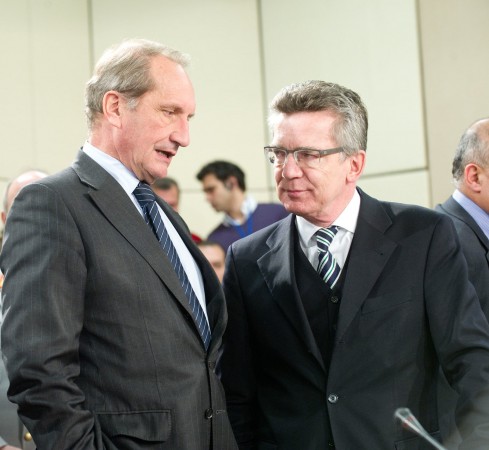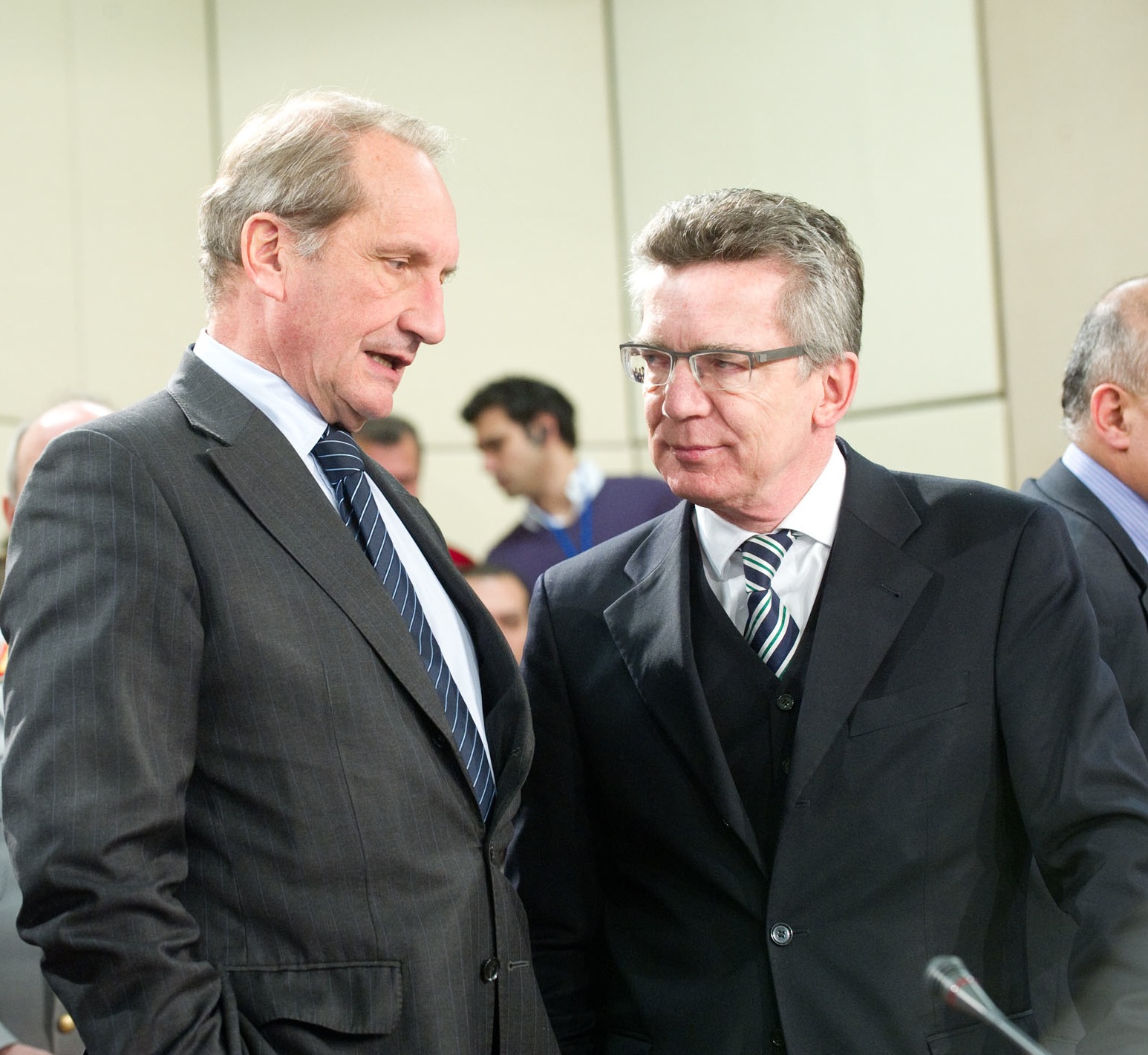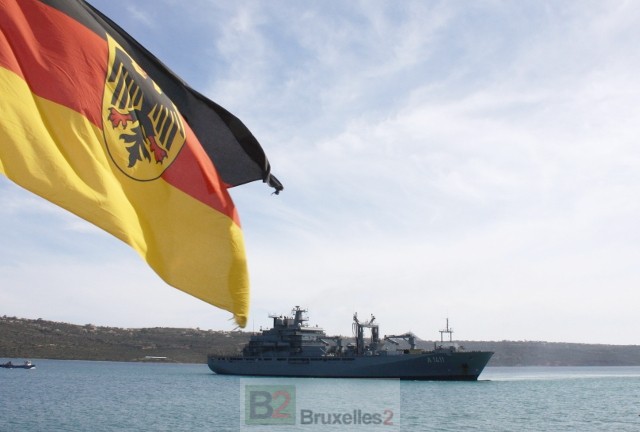Germans and French determined to strengthen Defense Europe

(BRUSSELS2, analysis) “ We believe it ". This is somewhat the meaning of the declaration on the European security and defense policy signed at the last Franco-German summit, on 6 February last, by the Ministers for Foreign Affairs and Defense of the two countries, Alain Juppé and Guido Westerwelle, Gérard Longuet and Thomas de Maizière. A statement that went a little unnoticed and deserves a little more careful reading.
The display ofpolitical convergence
This text of 4 pages (French version) or 7 pages (English version) aims to be a complete overview of what is possible in terms of European defence, whether in terms of structures, capacities and operations », of strategic dialogue and cooperation in the field of armaments. A few concrete projects are outlined (medical transport, space surveillance). But even more it is a political convergence that is sought. There are actually more points of agreement there than between the French and the British. However, a deadline has been set: 2013, with the celebration of the 50th anniversary of the Elysée Treaty, and the stated ambition of " give new impetus to their common security and defense policy ».
Credible and effective CSDP: operations in the Sahel and the Horn of Africa
« “We have long shared the goal of a stronger European defence. (...) We believe that the common defense and security policy is a credible and effective instrument for crisis management write the authors, with an example. The Franco-German couple is thus determined to ensure the launch of the preparatory work for an engagement in the Sahel, to continue the work in progress on the mission to reinforce maritime capacities in the Horn of Africa. It reaffirms its intention to support the anti-piracy operation Atalanta and that of training Somali soldiers (EUTM Somalia) as a " significant CSDP contribution to efforts to stabilize Somalia ».
A strategic dialogue advance on crises
The differences in approach exist between French and Germans, it is a fact. But the two partners intend to better overcome their differences in the future. " For future crises, France and Germany will consult closely before decisions concerning the commitment of military forces (NB: a concerted effort which was only slightly defeated during the operation in Libya). They also want to make the Franco-German brigade the heart of the two countries' response. " Based on a common assessment of the crises, Franco-German responses should correspond, and if possible the commitment of the Franco-German Brigade. This means harmonizing the differences between national administrative procedures and reducing them as much as possible. » This strategic dialogue - which will also involve an intensification of the dialogue between the two parliaments - " should also include reflections on crisis scenarios, focusing on the Middle East and Africa ».
Joint projects for medical transport and in space surveillance
In terms of capabilities, the two partners want to go further than general support for ongoing pooling and sharing initiatives at the European Defense Agency and NATO. They want to strengthen the European Air Transport Command (EATC), set up in Eindhoven, and “ examine the possibilities of expanding its means and capacities ". A medical support cooperation project will be launched with reciprocal support: Germany will make its CH-53 helicopters available to France and France will support Germany in the field of CSAR - combat search and rescue . The two countries also want to promote the development of a " core of a European space surveillance capability ", so they want " develop a common capacity » ; a cooperation that could also extend to helicopters, land systems and missile defense activities".
Convergences in the preparation and conduct of armaments programs
More generally, moreover, for " promote convergence in the different phases (preparatory and active) of common armaments programs”, France and Germany will intensify discussions on integrated teams and the “joint capability process” bringing together military expertise as well as entities in charge of design and procurement from both countries. They want to achieve better convergence in the definition of military and operational needs, harmonization of certification procedures for weapons and armament systems (mutual recognition of test methods) and to guarantee more continuity in exchanges between users and suppliers ". And want to look for joint industrial proposals responding to Franco-German projects”.
To be able to control European industry
The industry and market regulation constitutes another common theme, in particular “ on the security of supplies and the control of foreign investments”. NB: A key point to prevent the European armaments industry from going to shreds or from falling into the hands of foreign investors, such as the Greek shipyards which recently passed into the hands of Chinese industrialists. Finally, " Our common efforts in favor of a more efficient European defense will contribute to the strengthening of European integration and of the Atlantic partnership, pillars of the security policy in Europe. »
Download the adopted declaration, in French / English (I recommend this latest version, the French version seems approximate to me)

